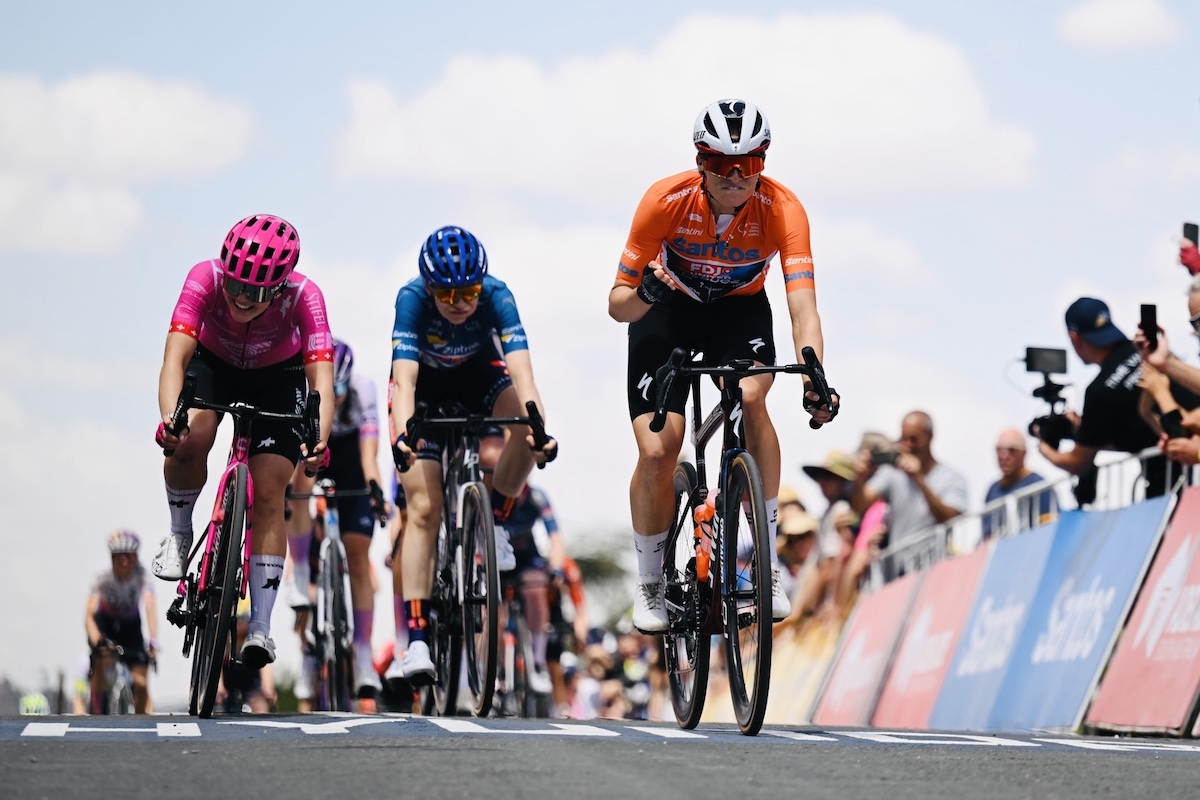Carl Decker on life and racing as a ninth year pro
Age no barrier for American mountain biker
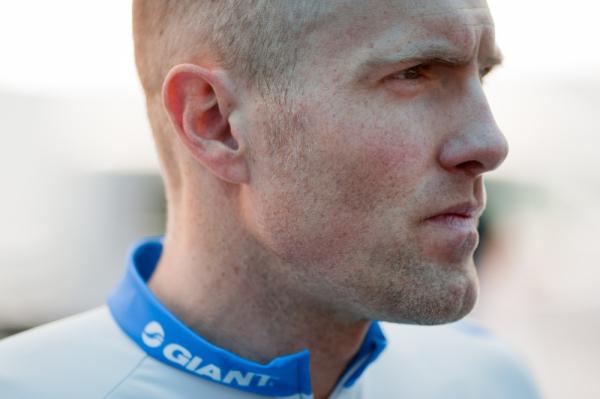
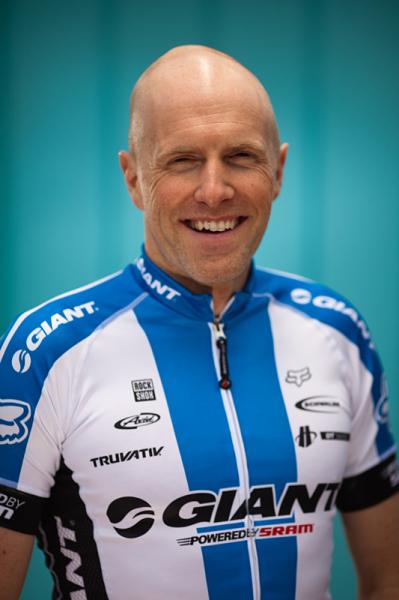
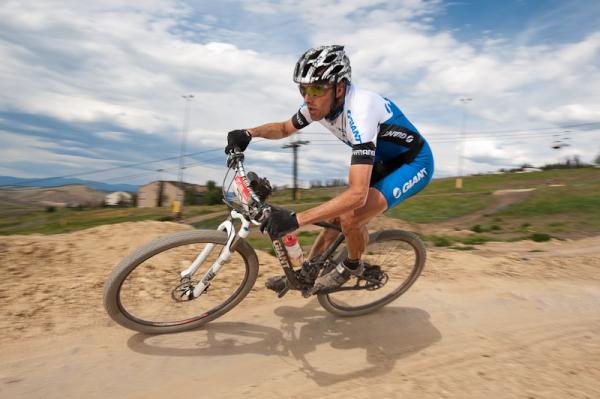
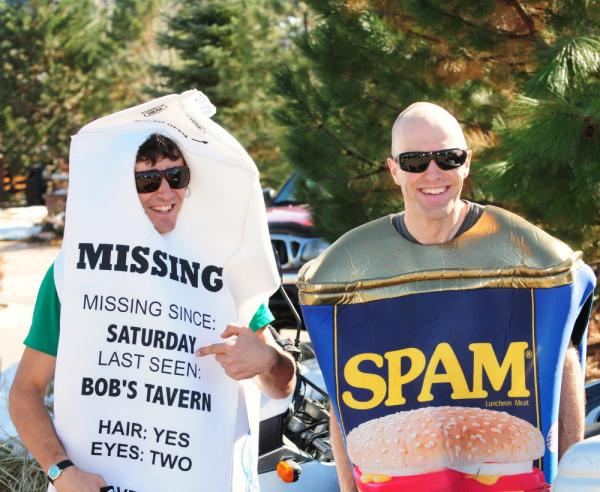
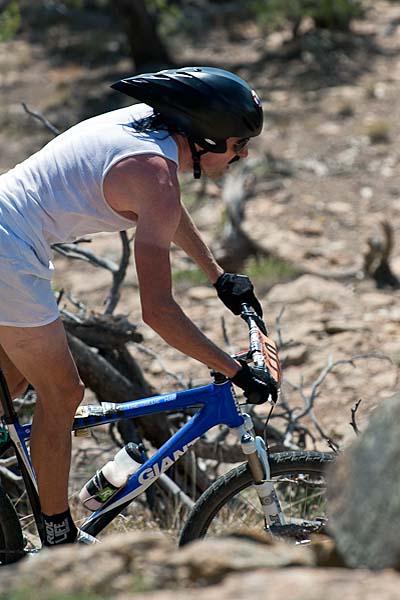
Carl Decker, 35, is perfectly happy to be racing his bike. The Bend, Oregon, based mountain bike pro is in his ninth year with the Giant Factory Racing team.
"For the life of me, I can't think of anything else I'd rather be doing and until that changes, I'd guess I'll keep doing what I'm doing," said Decker to Cyclingnews.
Decker, a former runner in college, has made a few changes for 2011. He pushed back the start of his spring campaign after taking a "huge off season" which he spent skiing, riding motorcycles and running. He recently placed fourth at the Whiskey 50 in Prescott, Arizona.
"All my goals are late in the season," said Decker explaining that his objectives include events like the Downieville Classic in July and the marathon national championships in his hometown of Bend in September.
In 2010, Decker won the Downieville All Mountain overall, a two-day race in California. "I set a new record in the cross country last year and won the overall. I'd like to win the downhill stage there this year, too, and quiet some naysayers."
"From July on, there is a litany of juicy races for which I should be coming up in form instead of the usual 'I-can't-do-this-forever' feeling you usually get that time of year."
After Downieville, Decker will get to hop in his car and drive to the cross country, short track and super D US national championships in Sun Valley, Idaho. He'll also race the Leadville 100 mountain bike race in August as he gets ready for a chance to win a national title at home in September.
The latest race content, interviews, features, reviews and expert buying guides, direct to your inbox!
"Marathon nationals goes within about 80 meters of my house, so that's a big one for me. I know all the trails. I've been on every part of the course although I don't know exactly how it all connects yet."
Going short and long
While some elite racers switch their focus from shorter distances races to endurance races at Carl's age, he is particularly fond of short distance off-road races and not interested in focusing solely on all day or multi-day mountain bike events.
"That's what everybody does and maybe the writing is on the wall and I'll have to do that eventually. I don't want to train longer or more. I want to train less and ride harder. So far I think that's working for me."
"I'm a cross country guy through and through. In a cross country, it's a race among men, not a race against the course. I love to do super D and short tracks, but I also like to measure myself again the best cross country guys and see how I stack up."
"I like doing the shorter races," he said. "I like the style of short track races and super Ds, but it's funny, guys get older and go longer to be competitive. I just don't really want to be that guy."
"Marathon races are fine, but cross country races are perfect given how much time they take and being able to go out and ride the week after and feel good."
Even so, Decker confessed that he "loves" doing mountain bike stage races, too. "I did the three-day TransRockies last year with Kelli (Emmett) and Adam (Craig). That was a great time."
But don't expect him to significantly alter his training for the longest events. "Leadville will be a neat event, but I don't know how much specific training I'll be doing for it. I don't really want to get accustomed to six or seven hour rides at altitude or anywhere else."
Decker, who was the 2005 US elite national road champion, will also spend some time in 2011 racing again on the road. Look for him in races in the colors of the Broadmark team.
Consistency is key
Decker has been associated with the Giant team for almost a decade. "I never once thought about leaving. The grass isn't greener on the other side of the fence."
"It's important for to have the consistency. I'm not a negotiater or wheeler dealer," said Decker. "I'm not fostering connections all the time or trying to snake my way into a better deal because I like where I'm at. Folks are super nice. When you go to the Giant corporate office, it's a bunch of people happy to be there."
This year, Giant made Decker's life even sweeter by giving him a blank piece of paper on which to construct his own perfect race calendar.
"Giant gave us carte blanche to chose our schedules. Kelli (Emmett) and I, being from snow states, didn't see the value of going to early US Pro XCT races if Giant was not pushing us there. We told Giant what we wanted to do and they wrote a schedule for us including those events." Decker opted to skip the first two US Pro XCT rounds in Bonelli Park and Fontana and instead made his first appearance at round three at Sea Otter.
"The first two US Pro XCTs - it was easy to not want to do them. It's not like going to Vermont or somewhere. I live in a place where it's cool and to be fit for those races, I have to leave my home and go down south," said Decker. "Those early races kind of take away from something at the back end of the season. It's not like I'm not training - I'm skiing and I'm fit."
"As an athlete, I was probably fitter in late March than I'll be at any other time of the year. I can do more push ups, more sit ups, I can run faster and ski faster, and I'm not the hunchbacked bike racer by trade."
Decker knows he can gain something at the end of the season if he starts out more conservatively. Top priority races like Downieville also help his sponsor. "Downieville is a bigger story for Giant and it's easier to sell. For me to win at Fontana, it's harder for me to do - deeper field, a lot of talent and bunch of Canadians. It's fast. To beat Geoff Kabush, even on his average day, is just something I'm not really capable of doing often."
Decker will race the final two US Pro XCTs - the Subaru Cup in Wisconsin and the finals in Montana.
"For me, those are two new venues for me in cool states that are interesting places," said Decker. "I'll be fit for the later ones, and I'll be a contender, and I don't have to compromise to go do them. Doing those is a win win situation."
Going to the 29er platform
"I just recently converted - many people have been doing it a lot longer," said Decker. "People said 29ers were better, and others winged about them. For me and the racing I like to do, they are better in a lot of ways. I think the shortcomings are outweighed by the positives."
"It was cool when the Euros and everyone else weren't tuned into 29ers because it gave us an advantage, but it's good in that it's a market that hasn't been tapped." Many European racers have switched to 29ers in the past year, especially for endurance events.
"Last year, it seemed like a no brainer to me to run a 29er at Downieville. I was as fast on a downhill on my 29er as I would have been on a 26er. And it worked out well." Downieville is a 40-minute race with lots of flat sections. Decker noted that there are places where it'd be good to have a full on downhill rig and there are places where you'd be better off walking your 29er down stuff and riding fast the other places. "It's a compromise - like with choosing tires."
Decker is also getting used to new componentry on his rig for 2011. "This year is a huge transition year for bike set-up. The only thing that's the same is the seat and grips and the frame. We went from Shimano to SRAM. Everything is different."
"I've been a Shimano guy for a long time, so it's exciting because a lot of the stuff is a lot lighter, which is great for a cross country guy. I own a gram scale. But it's a transition - also with the tires, too. We went from having four tires to more choices of tires that I'll ever ride." He is on Schwalbe tires for 2011.
What's next?
Decker doesn't know what's next. He's just having fun racing his bike for the time being.
"I've been on the two-year plan for seven years," he said. "I don't want to make plans for afterward because it would dilute my focus on what I'm doing now. I love what I'm doing now."
"I started racing mountain bikes in 1984 when I was nine, so I've been doing it a long time. I know what I like, and I think this is it."
Decker also races rally cars, but he doesn't plan to switch pro careers. "Racing rally cars is cool for most of the same reasons as racing a bike, but realistically, if I stopped racing bikes today, and started racing rally cars, which there's nothing I'd rather do on earth, in a year or two it'd be the same as racing mountain bikes except I wouldn't be as fit and it wouldn't be as good."
"All the good stuff is the same as racing bikes and all the bad stuff is a lot more complicated." What's straightforward for Decker is racing his bike fast and you can expect him to keep doing so for the foreseeable future.
Sue George is an editor at Cyclingnews. She coordinates all of the site's mountain bike race coverage and assists with the road, 'cross and track coverage.
